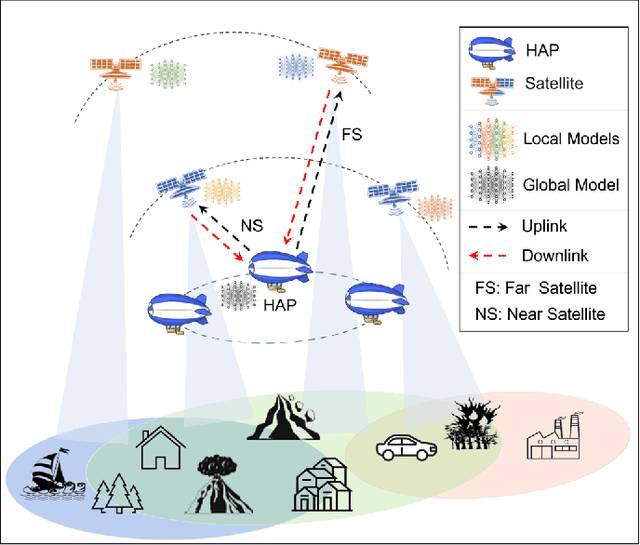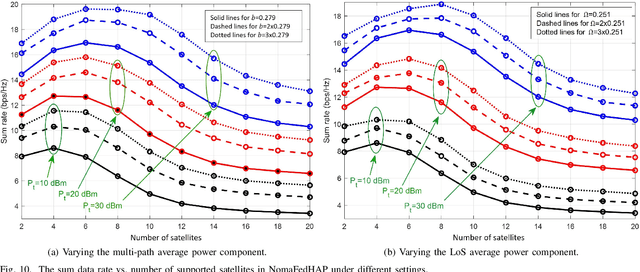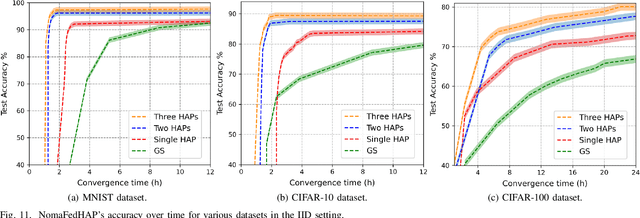Khaled Ramadan
Communication-Efficient Federated Learning for LEO Constellations Integrated with HAPs Using Hybrid NOMA-OFDM
Jan 01, 2024



Abstract:Space AI has become increasingly important and sometimes even necessary for government, businesses, and society. An active research topic under this mission is integrating federated learning (FL) with satellite communications (SatCom) so that numerous low Earth orbit (LEO) satellites can collaboratively train a machine learning model. However, the special communication environment of SatCom leads to a very slow FL training process up to days and weeks. This paper proposes NomaFedHAP, a novel FL-SatCom approach tailored to LEO satellites, that (1) utilizes high-altitude platforms (HAPs) as distributed parameter servers (PS) to enhance satellite visibility, and (2) introduces non-orthogonal multiple access (NOMA) into LEO to enable fast and bandwidth-efficient model transmissions. In addition, NomaFedHAP includes (3) a new communication topology that exploits HAPs to bridge satellites among different orbits to mitigate the Doppler shift, and (4) a new FL model aggregation scheme that optimally balances models between different orbits and shells. Moreover, we (5) derive a closed-form expression of the outage probability for satellites in near and far shells, as well as for the entire system. Our extensive simulations have validated the mathematical analysis and demonstrated the superior performance of NomaFedHAP in achieving fast and efficient FL model convergence with high accuracy as compared to the state-of-the-art.
Enhanced MIMO-DCT-OFDM System Using Cosine Domain Equalizer
Nov 24, 2023Abstract:Discrete Cosine Transform (DCT) can be used instead of conventional Discrete Fourier Transform (DFT) for the Orthogonal Frequency Division Multiplexing (OFDM) construction, which offers many advantages. In this paper, the Multiple-Input-Multiple-Output (MIMO) DCT-OFDM is enhanced using a proposed Cosine Domain Equalizer (CDE) instead of a Frequency Domain Equalizer (FDE). The results are evaluated through the Rayleigh fading channel with Co-Carrier Frequency Offset (Co-CFO) of different MIMO configurations. The average bit error probability and the simulated time of the proposed scheme and the conventional one is compared, which indicates the importance of the proposed scheme. Also, a closed formula for the number of arithmetic operations of the proposed equalizer is developed. The proposed equalizer gives a simulation time reduction of about 81.21%, 83.74% compared to that of the conventional LZF-FDE, and LMMSE-FDE, respectively for the case of 4x4 configuration.
 Add to Chrome
Add to Chrome Add to Firefox
Add to Firefox Add to Edge
Add to Edge